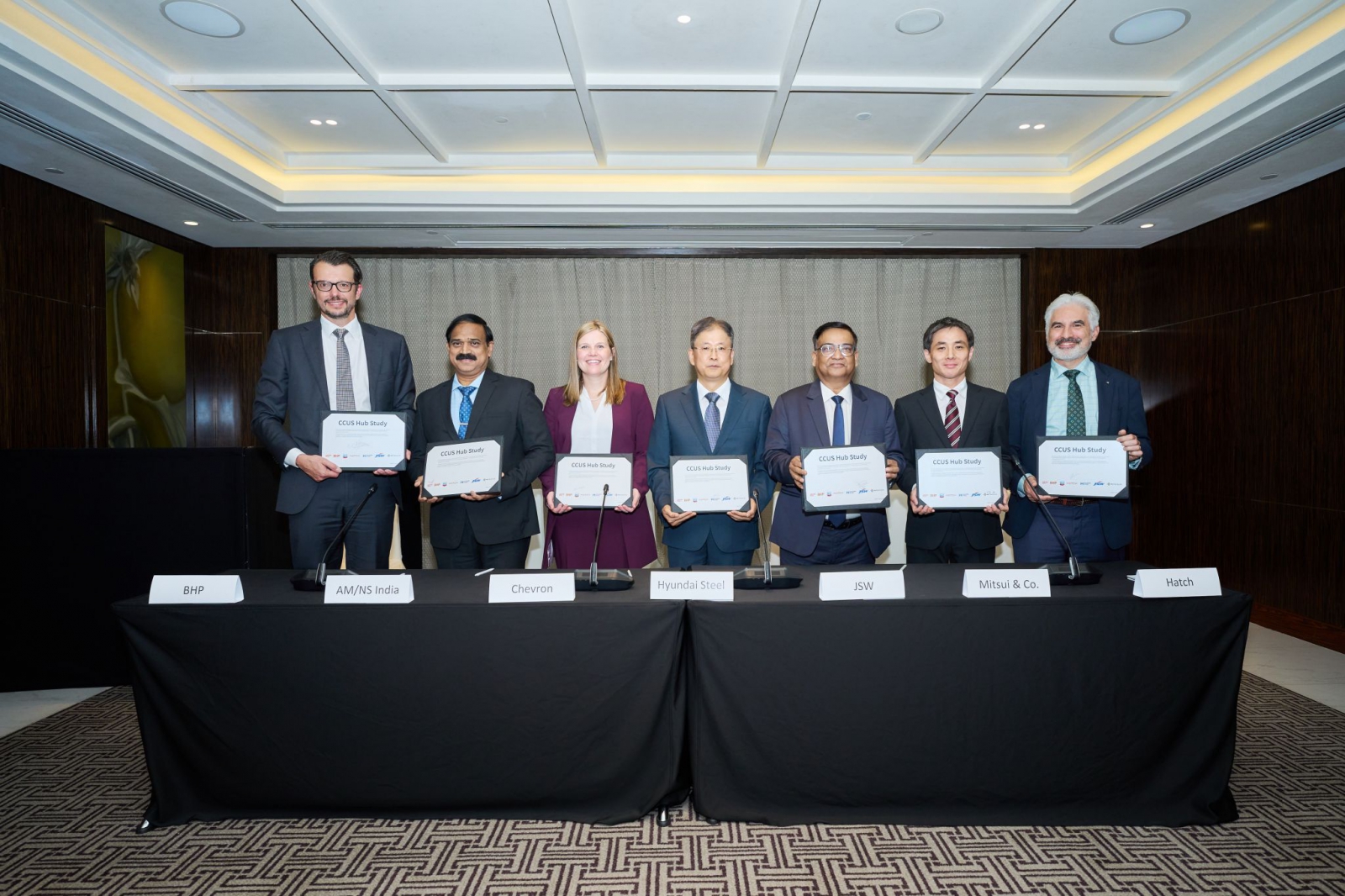
Global steel, mining, and energy majors form alliance to tap Asia’s CCUS opportunities. (Photo: BHP)
Asia’s carbon capture, utilization and storage (CCUS) ambitions are drawing strong interest, with cross-sector players joining forces to launch a new research initiative.
On August 11, BHP, the world’s largest mining company, announced a partnership with leading steel and energy companies to assess the feasibility of establishing a regional CCUS hub in Asia, aiming to accelerate decarbonization in hard-to-abate sectors such as steelmaking.
Synergies aimed at lowering development costs
The newly formed cross-industry coalition includes BHP, ArcelorMittal Nippon Steel India, India’s JSW Steel, Hyundai Steel, U.S. energy major Chevron, and Japan’s Mitsui & Co.
The group will identify large-scale CCUS projects in Asia with strong storage and utilization potential, then work to commercialize them for application in hard-to-abate industries. According to BHP, this is the first industry-led independent feasibility study of its kind in Asia. The goal is to leverage shared infrastructure and economies of scale to maximize cost efficiency.
Ben Ellis, BHP’s Vice President of Marketing Sustainability, noted that Asia produces more than 1 billion tonnes of steel annually from blast furnaces with long remaining lifespans. This makes it crucial, he said, to advance technologies that decarbonize existing steelmaking assets in parallel with the commercialization of emerging low-carbon steel technologies.
The year-long study will not only focus on technical improvements but also examine regulatory frameworks in different countries, including cross-border storage and transport requirements. Centered on establishing a regional hub, the initiative targets four key outcomes: lowering unit costs, ensuring economic viability, offering new solutions for other hard-to-abate sectors, sharing costs and risks among stakeholders.
.jpg)
Cross-industry companies join forces to launch a research project aiming to establish a regional hub. (Photo: iStock)
Southeast Asia faces CCUS cost, policy, tech hurdles
According to consultancy McKinsey, Southeast Asia has three potential pathways for CCUS hub development: storage-led, emissions-source-led, and cross-industry-led models. Thailand and Indonesia could emerge as emissions-source-led hubs, while Indonesia also holds potential for a cross-industry CCUS hub.
However, McKinsey cautioned that the region faces three major challenges:
- The cost of carbon capture remains well above prevailing carbon prices, undermining CCUS competitiveness.
- Carbon pricing, regulatory clarity, and green finance frameworks remain uncertain.
- Technological limitations in the near term hinder cost-reduction opportunities.
Researchers recommend that business leaders, emitters, technology providers, and regulators act now while tracking key indicators such as carbon price access and CCUS costs, in order to seize the optimal deployment window.
Source: BHP, Business Times, Reuters, McKinsey
.jpg)




